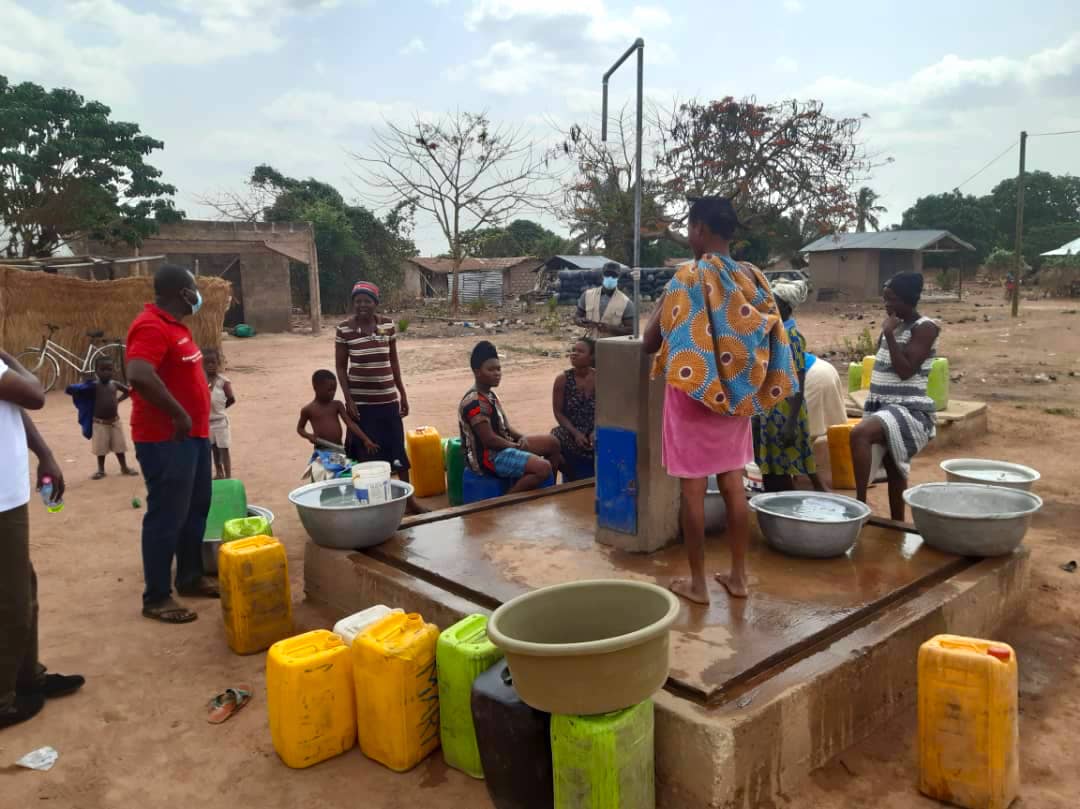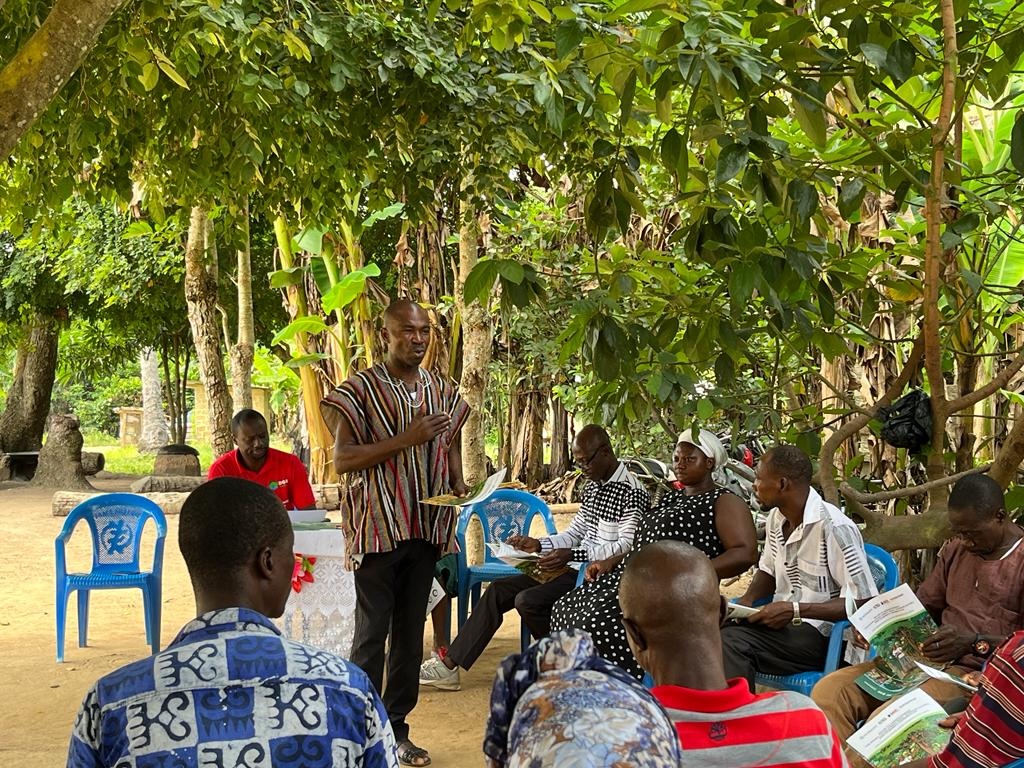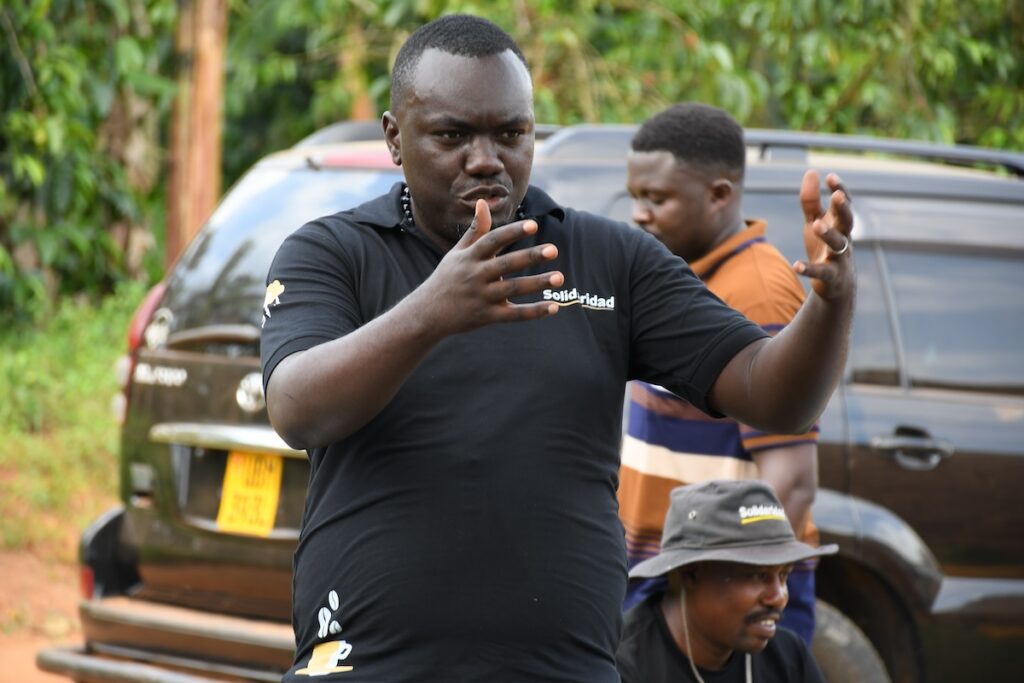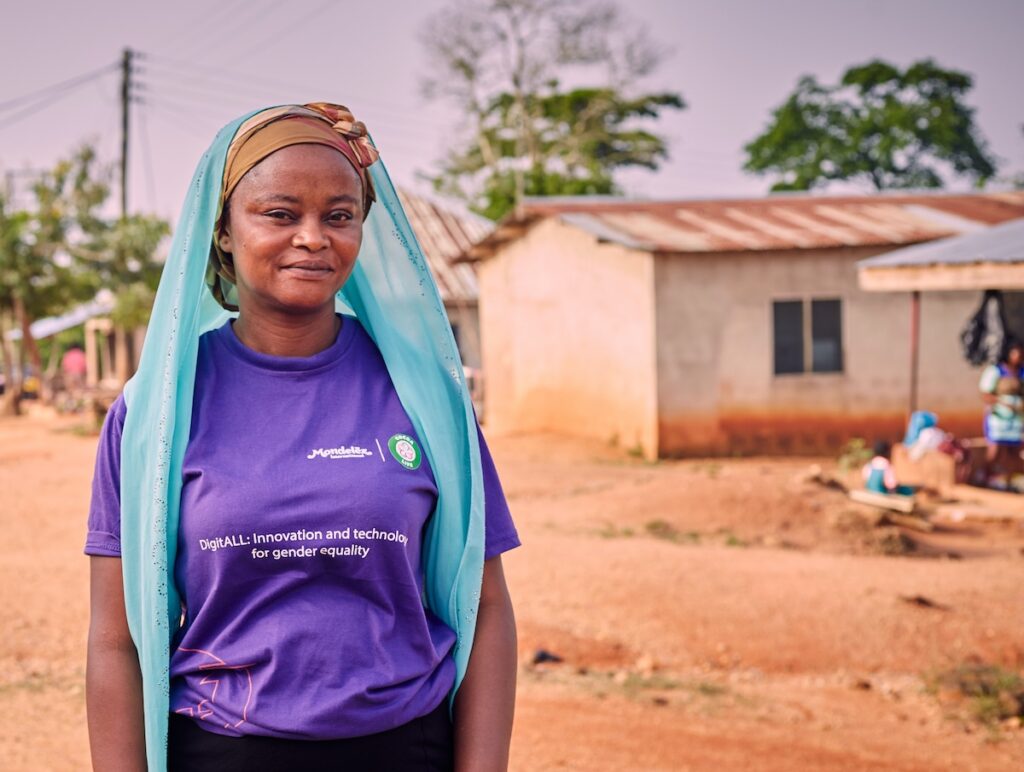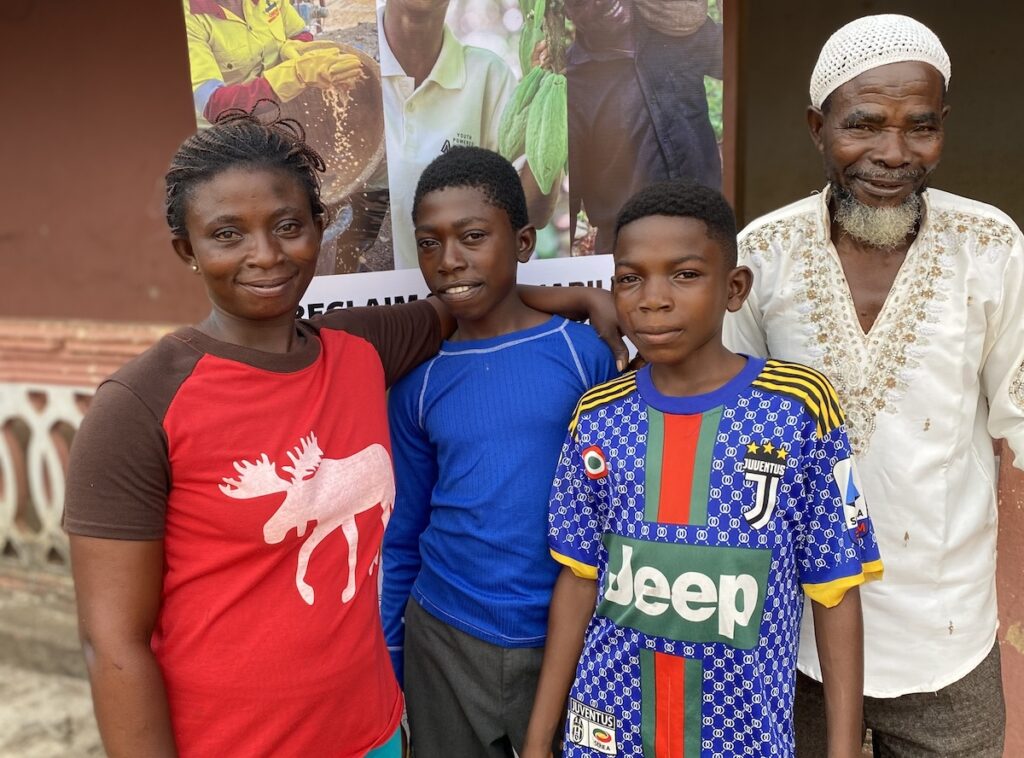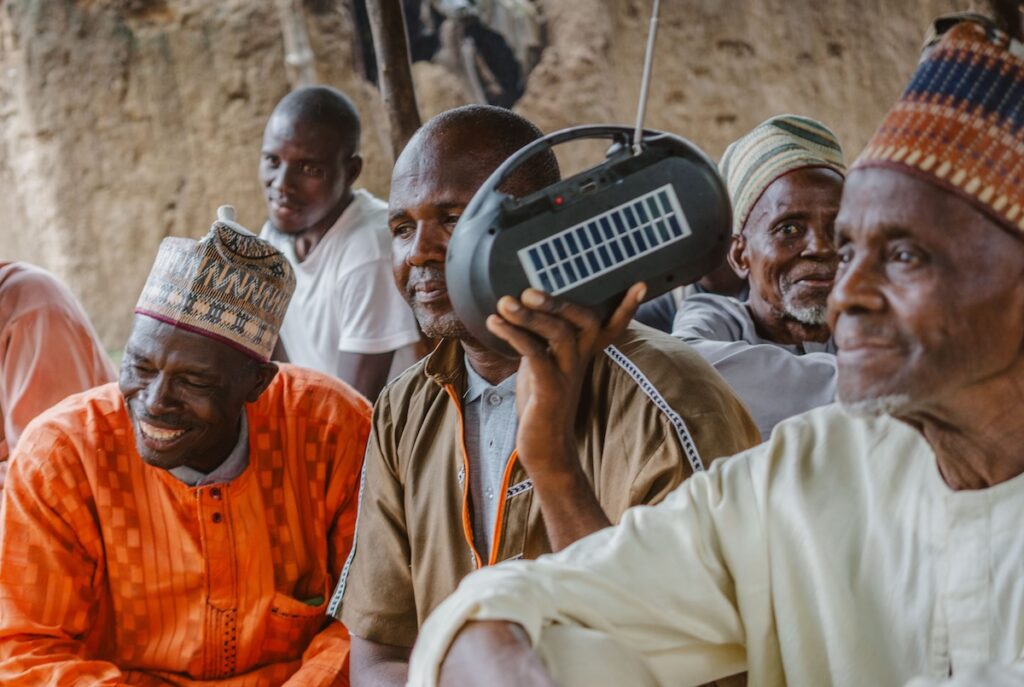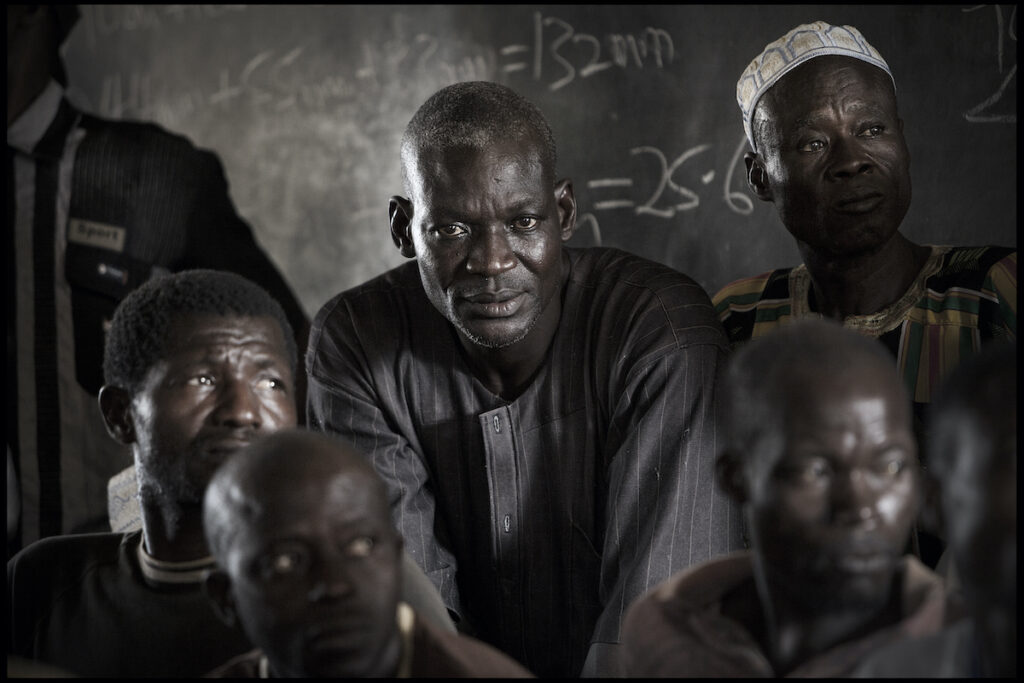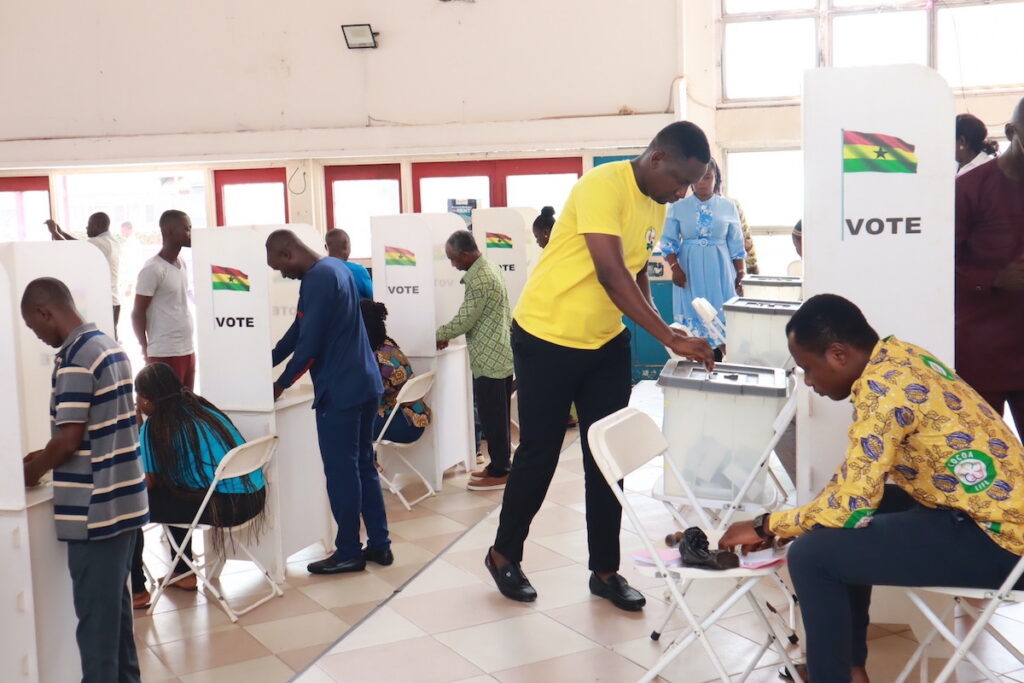Extreme rainfall variability, long dry-spells and high temperatures have resulted in water scarcity for over three million people who rely on surface waters to survive in Ghana.
This is especially challenging in rural communities that also contend with high incidences of diarrhea and typhoid due to the poor quality of the water they depend on.
Over the years, our community relied heavily on the Pru River, which gets silted after a downpour and dries up multiple times a year when it does not rain. This forced us to turn to a neighbouring community three miles away for potable water.
Wisdom Nfabi, community member from Bayaa, Bono East Region, GHana
The Ghana Dedicated Grant Mechanism project, implemented by Solidaridad West Africa with funding from the World Bank, has supported 37 local communities with solar-powered boreholes for easy access to potable water and to help them deal with climate impact.
Bayaa is one of the communities that has benefited from the borehole, which is catering to the needs of thousands of rural folks using a renewable energy source to ensure all-year-round water availability for households and agriculture.
“The presence of a solar-powered borehole in our community is a real life-changing experience for many of us. Our lives depend on it. At least, we are assured of reliable, safe drinking water,” says Wisdom.
Providing relief for women and girls
Besides providing access to safe drinking water, the presence of boreholes in the rural communities has also reduced the burden of women and girls who often trek several miles to collect water for household use.
Mary Aboagyewaa in the Abease community of the Bono East region says she can now afford to spend more time on her farm since she no longer takes the long and dangerous walk, multiple times a day, to collect water.
Each morning, before heading to the farm, I had to travel five miles with my gallons to collect water from the river whenever the community dugout dried up. This made me tired even before I arrive at the farm. It really affected my productivity. But now, thanks to the solar-powered borehole located at close proximity, I can spend enough time on my farm and get enough rest too.
Mary Aboagyewaa, Community member from Abease, Bono East
For Sandra Pokua Birago, a 15-year-old student who lives in the Asekye Krokese community in the Bono East region, the proximity of the new borehole to her home means spending less time fetching water, but more for her schoolwork.
Sandra says the borehole is also making it possible for her to maintain personal hygiene and to observe proper handwashing as part of measures to control Covid-19 at home and in school.
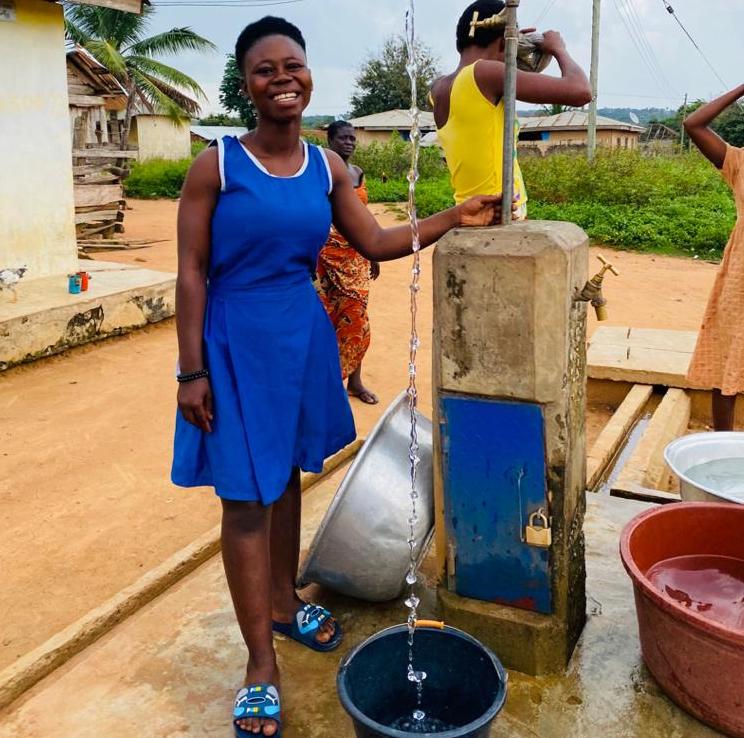
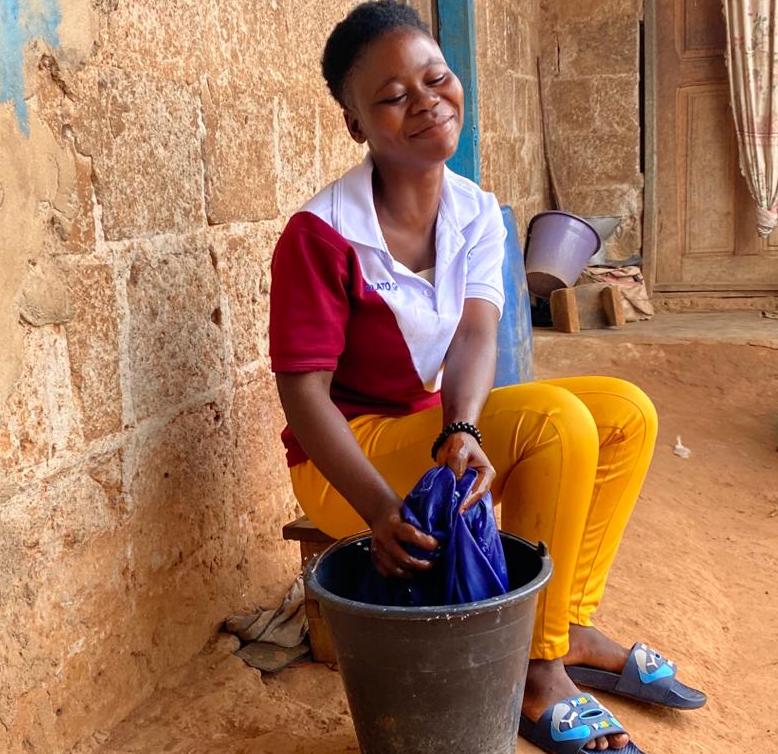
Serving as an irrigation source
For the people of Koradaso, a beneficiary community in the Bono region, the borehole meets more than their domestic water needs. It also serves as a source of water for the irrigation of a community-based tree nursery funded by the project. The nursery, which is run by the Peaceful Tree and Maize Cooperative, a community-based organization, is enabling them to raise tree seedlings for afforestation, throughout the year.
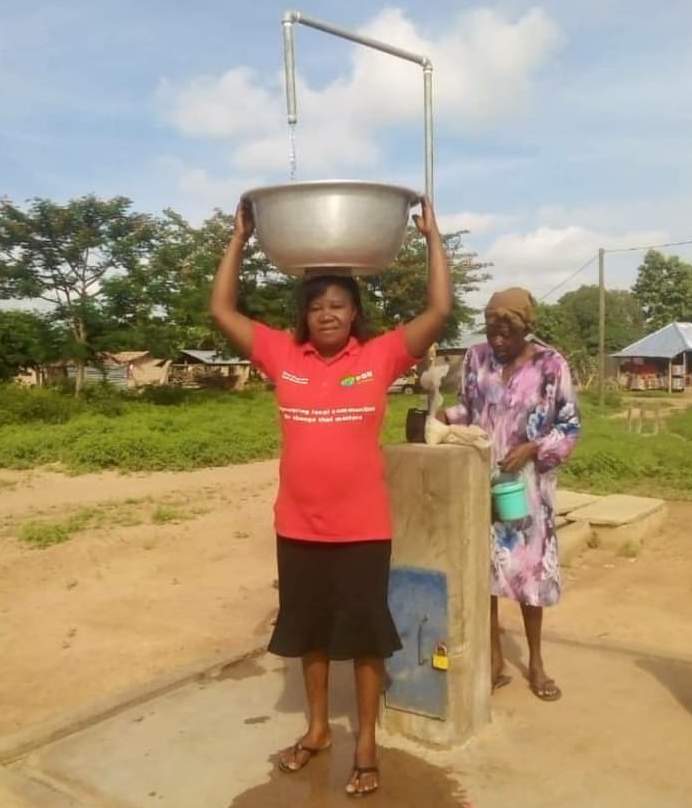
“Before the construction of the borehole, access to water for irrigation was a huge challenge that affected the survival of the seedlings and stalled our activities. Sometimes we had to transport water from some neighbouring communities for irrigation at a high cost,” says Ophelius Siebekpiir, the chairperson of the community-based organization.
Out of the 20,000 economic tree seedlings recently raised by the group, Ophelius says they recorded an unprecedented high survival rate of about 85 percent.
The Ghana Dedicated Grant Mechanism project has linked the community-based organization with the Ghana Forest Investment Programme (G-FIP) to grow the seedlings to restore degraded forests, under a modified taungya system, in which some food crop cultivation is allowed until the seedlings are old enough to close canopy.
Change beyond direct beneficiaries
Beyond the direct beneficiary communities, the boreholes also serve other neighbouring communities that have challenges with water.
William Oppong Boadu, the community focal person for the project in Nsuhia, a project community in the Bono region indicates that some folks from the surrounding communities like Kokrosua and Twetweboasu, make trips to the community to fetch from the borehole.
It is rewarding to see that the boreholes have eased the water stress on both our direct and indirect beneficiaries. Improving access to potable water is key to ensuring the wellbeing of people, particularly as the climate crisis deepens amid the Covid-19 pandemic.
Dr. Winston Asante, Project Coordinator for Dedicated Grant Mechanism at Solidaridad
“It is heartwarming to witness the change the boreholes have brought to these vulnerable communities to enable them to thrive while contributing to Ghana’s attainment of the Sustainable Development Goals 3, 6, 7, and 13.”

